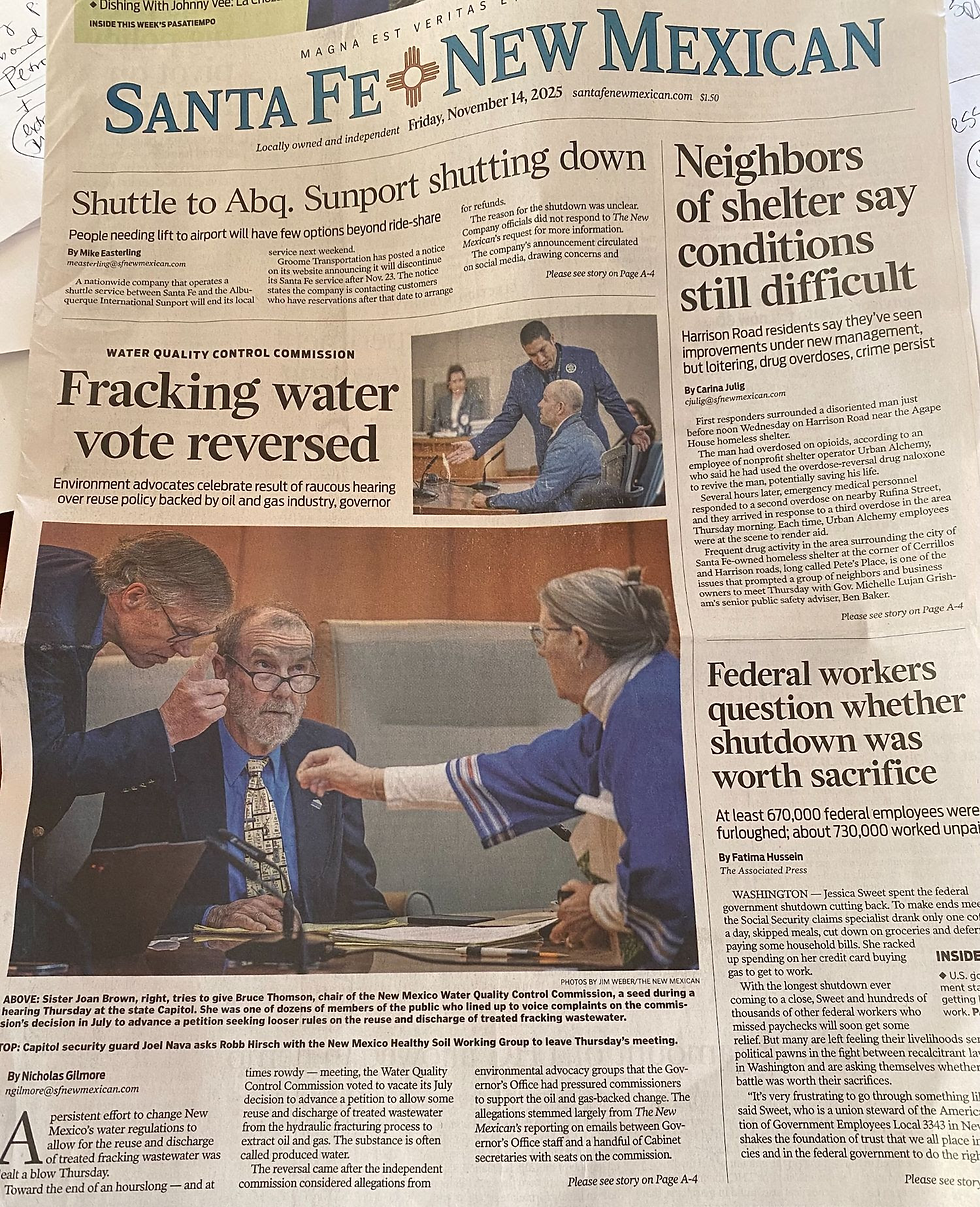Frontline community groups came together to speak against hydrogen - now zombie bill HB 227 is dead
- New Energy Economy

- Feb 7, 2022
- 2 min read
Led by YUCCA, Pueblo Action Alliance, SWOP, and Indigenous Lifeways, fifteen environmental justice groups called a press conference today at 12:00 and spoke eloquently against false solutions and the undemocratic use of a dummy bill to attempt to bring the bill back to life after it was tabled in the face of public outrage. Read our press statement here.
Today at approximately 3:05PM Speaker Egolf put the bill on the speaker's table, pulling it from Representative Lundstrom's committee and effectively killing it to the surprise of everyone present. It was an exhilarating day - a victory we did not expect and an example of activism at its finest. But we are not done yet!
TOMORROW LET THE LEGISLATURE KNOW HYDROGEN IS NOT A "RENEWABLE ENERGY SOURCE" AT 9:00AM
SB 194, "Additional Energy Acts Definitions" includes a sardonic twisted new definition of "renewable" to include hydrogen. While SB 194 does not include tax incentives like the Hydrogen Hub Development Act, it was designed to trigger the expenditure of $125M already set aside in the pending appropriations bills by defining hydrogen production that emits up to 375 lbs of CO2 per 1MWh as "clean."
SB 194 will be heard in Senate Conservation on Tuesday at 9:00AM. Together we succeeded in defeating the Hydrogen Development Hub Act. Together we can succeed again.
Please reach out today to committee members and urge them to VOTE NO when SB 194 bill comes up for a vote. Talking points are available here.
HB6 - THE NOT SO CLEAN FUTURE ACT WAS ROLLED TO WEDNESDAY
Many of the same groups joined together to propose necessary amendments to HB6 - the "Clean" Future Act, and we are working with legislators to make the bill a meaningful piece of climate legislation. The bill will be heard in House Government, Elections and Indian Affairs on Wednesday at 8:30AM.
We are asking all climate activists to prioritize opposition to the false solutions enshrined in this bill and to CALL COMMITTEE MEMBERS AND BILL SPONSORS to demand the below amendments from the Environmental Justice Coalition:
The timeline should be moved up to 2023 in order to make the reduction targets by 2030 achievable, to comport with the science, and to initiate the consultation process which needs to start as soon as possible.
The removal of offsets and credits from the bill will only impact 10% of mandated reductions but vastly improve the bill by:
Protecting against unintended consequences and harmful impacts to Indigenous communities.
Avoiding investment in efforts that have proven ineffective at reducing emissions at best and counterproductive in some cases.
Make it more feasible to move the rule-making process up by eliminating the enormous burden of creating a credit accounting system.
3. Consultation needs to be strengthened. While we appreciate that the Indian Affairs Department was notified of the bill - we invite you to consider the obligations of consultation required under the Free, Prior, and Informed Consent doctrine and also the principles developed by this administration’s Climate Change Task Force. We’ve made amendments to strengthen consultation.
4. It is essential to track downstream emissions from oil and gas extraction in our state so we can understand how extraction and oil and gas production in our backyards is contributing to global climate emissions and integrate that knowledge into future climate policy development.








Comments